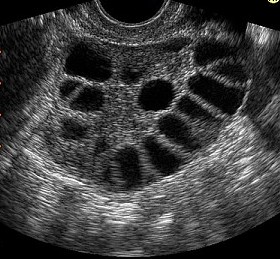Are you experiencing irregular periods, weight gain, hair growth on the body and face, thinning of the hair on the head? Don’t ignore the symptoms as chances are you may be suffering from a condition called Polycystic Ovarian Syndrome (PCOS).
What is PCOS?
PCOS is an endocrine disorder which is associated with an excess of androgens or male hormones in the body. It leads to the formation of small cysts in the ovaries. According to experts, nearly 40% percent of teenagers today suffer from PCOS due to sedentary life or consumption of high calorie, high carb diet.
It is more commonly found in women living in urban areas than women residing in rural places as it is majorly a lifestyle disease. The exact cause of the disease is not known.
Symptoms of PCOS
Symptoms of PCOS include irregular, missed or scanty menstruation cycle, weight gain, excessive hair growth on chin, lower abdomen, thighs, facial hair and thinning of hair on your head.
Why worry if you have PCOS?
One of the major effect that PCOS have on a female body is that it leads to imbalance of hormones which may again interfere with the growth and release of eggs from the ovaries, thereby preventing ovulation and may lead to infertility in some cases.
Also, since the body becomes resistant to insulin, a women is at risk of obesity, hypertension, cholesterol and uterine cancer.
Is it possible to have a baby with PCOS?
The good news is that one need not be depressed as PCOS can be managed with medicines to some extent. A women can easily conceive by adopting a healthy lifestyle, eating right and maintaining healthy weight.
Treatment of PCOS
Treatment of PCOS depends partially on the woman’s stage of life. For younger women, treatments can include inducing exercises in daily routine, diet modifications and medication. Experts also prescribe the usage of birth control pills to control the menstrual cycle thereby decreasing androgen levels in the female body.
Some other treatments like Progesterone therapy is also adviced by doctors.
Source: zee news



